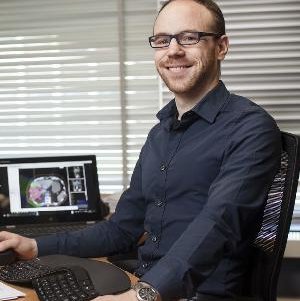Zoltan Perko: Sensitivity and Uncertainty Analysis of Partial Differential Equations in Nuclear Engineering
11 November 2021 16:00 - Location: Snijderszaal (EWI building 36, low-rise LB 01.010) | Add to my calendar
Nuclear engineering heavily relies on partial differential equation (PDE) systems derived from first principles (typically balance and conservation laws) and associated computational tools to solve them in order to design, optimize and analyze a plethora of practical applications. Since many of these applications are extremely high impact – such as fission reactors in nuclear power plants or radiotherapy treatments for cancer patients – the accuracy and speed requirements for solving these PDEs are very strict. Moreover, the highly complex nature of measurements needed to determine some PDE parameters (e.g., nuclear reaction cross sections) results in significant uncertainties, while at the same time we must ensure that stringent safety limits are always respected. This combination makes solving PDEs for nuclear applications a significant computational challenge, especially for many-query purposes such as optimization or uncertainty quantification.
In this presentation I will first give a brief overview of the most important PDEs in nuclear engineering (in particular the Boltzmann particle transport equation) and discuss how adjoint methods can be extended to perform sensitivity analysis of coupled criticality problems. Second, I will present basis and grid adaptive non-intrusive spectral methods that allow efficient sampling of the uncertain parameter space and produce meta-models of responses of interest with solving the underlying PDEs as few times as possible. Last, I will discuss non-intrusive reduced order modelling methods based on principle component analysis and adaptive sparse grids that approximate the complete PDE solution at arbitrary parameter combinations (both for static and time-dependent PDEs) and demonstrate their efficiency in a large-scale Molten Salt Fast Reactor application.
